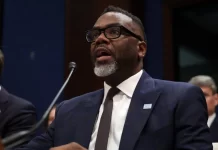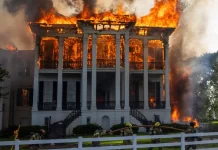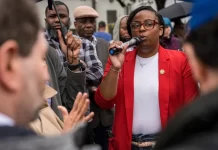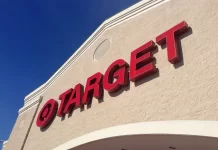By Stacy M. Brown, NNPA Newswire Senior National Correspondent
@StacyBrownMedia
And according to several community groups, including the DC Justice Lab, unarmed African Americans are over three times more likely to be shot and killed by police than white people.
The organization noted that amid an unprecedented surge in gun violence, primarily concentrated in Black and Brown communities, solutions that do not exacerbate the longstanding inequities are urgently needed.
With that, the DC Justice Lab joined groups like Cities United and March for Our Lives to develop a new tool they said could help ensure solutions to gun violence become centered in equity.
The Racial Equity Impact Analysis – or REIA – uses a set of questions to help decision-makers, including legislators, government officials, and advocacy organizations, identify and assess racial equity impacts before implementing a policy.
The organizations said the goal is to develop effective and equitable policies.
“We collaborated with other organizations and received insight and support from many experts in the field,” said Dr. Bethany Young, the DC Justice Lab deputy director.
“Black people and Latino people and other BIPOC communities are disproportionately affected by police gun violence and community gun violence. So, we were looking for tools that would allow communities to address the gun violence epidemic while ensuring that they’re not contributing to or exacerbating existing racial inequities.”
The Racial Equity Impact Analysis (REIA) is the result of a year-long collaboration among gun violence prevention groups, including Cities United, March for Our Lives.
Led by the Educational Fund to Stop Gun Violence, organizations included the Community Justice Action Fund, Consortium for Risk-Based Policy and the Johns Hopkins Center for Gun Violence Prevention and Policy at the Johns Hopkins Bloomberg School of Public Health.
According to a news release, REIA builds on a public health model that identifies the social determinants of health as a critical factor in violence.
These include lax gun laws, concentrated poverty, environmental lead, and alcohol abuse.
Specifically, REIA identifies and assesses factors bearing on racial equity before implementing policy.
Officials could evaluate these factors to promote racial equity, reduce victimization, and minimize arrests and incarceration.
If a policy already exists, this REIA tool can help guide ongoing implementation and amendments to that policy to address identified equity concerns.
Ideally, this tool should be a collaborative process within, and beyond the organization, the authors stated.
“The tool aims to address the root causes of violence in communities and set parameters around when law enforcement is involved,” Dr. Young noted.
“Gun violence affects every community differently, so we want to get to the root of the problem and avoid interaction with law enforcement.”
The report accompanying the tool noted that the impact of gun violence on the lives of people within BIPOC communities remains devastating and that there is an over-reliance on the heavily punitive criminal legal system to address violence.
The authors reported that Black men are arrested, denied bail, convicted or wrongfully convicted at higher rates, and issued longer sentences than their white counterparts.
As a result, the authors concluded nearly half of all Black men would face arrest before 23.
Beyond laws that only focus on firearms, the authors maintained that the policy agenda of gun violence prevention should work in tandem with other advocacy initiatives.
Dr. Young noted that this includes addressing racial inequalities in housing, education, transportation, and the criminal legal system, which all contribute to gun violence.
As an example, the authors examined Colorado’s extreme risk protection order statute – or ERPO.
The civil court orders are used to temporarily prohibit the possession and purchase of firearms by persons a court deems to pose a significant danger of harming themselves or others by possessing a gun.
The goal of ERPOs is to reduce firearm homicides and suicides by removing firearms from individuals at high risk of committing gun violence.
The lack of trust between law enforcement and African Americans in Colorado only deepened with the 2019 killing of Elijah McClain in Aurora.
“Colorado has quite the high rate of gun suicides attributed to white men, and one of the communities most impacted by guns is white males,” Dr. Young stated.
“Yet, you still see a situation where Black people are experiencing the brunt of harsh law enforcement tactics with a goal purportedly of reducing gun violence. But if they narrowly tailored it as we noted in the report, they can address the problem of gun violence in communities feeling the impact.”
Click here to view the full report.
The post DC Justice Lab Helps Create the Racial Equity Impact Analysis, a Gun Violence Prevention Tool first appeared on BlackPressUSA.


















